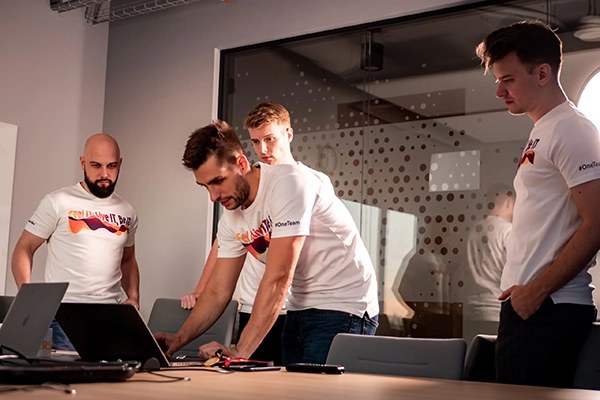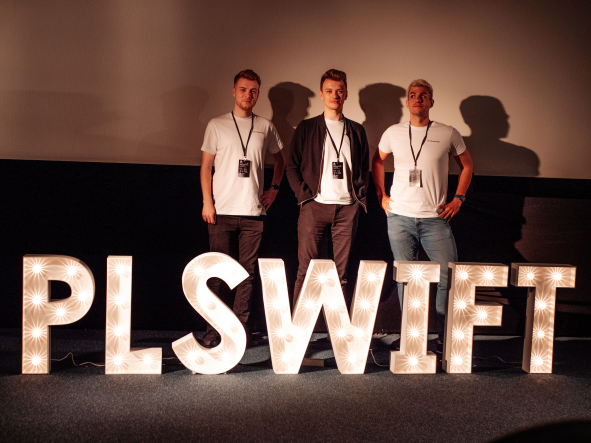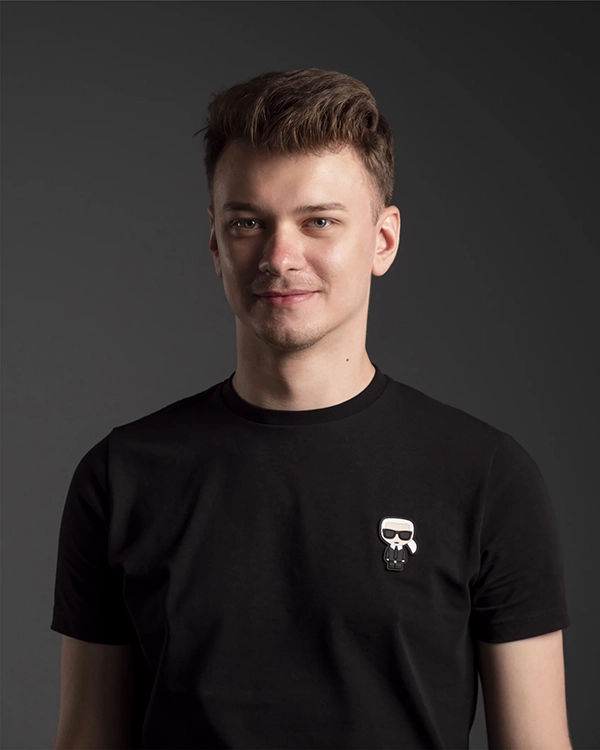Switching your career to software development – Advice from a Software Engineer

To many people, software development is a chance to pursue their interests, enter a dynamic industry and reignite excitement for your daily work. Though changing your job to a technical field like IT will probably require a lot of effort, it’s not impossible. Many software developers are proof of that. Read this article to learn what you need to do to switch your career to software development.
Reasons to change your career path to software development
A career change can be a serious and difficult decision. It often means that you’ll have to find your footing on an unknown ground, rethink your future plans and, most importantly, dedicate significant time and effort to gain necessary skills. Before you make the jump, you might want to ask yourself: Why software development?
Companies are still investing in their IT efforts
Despite news of layoffs in major tech companies in the recent months, many companies are still investing in their IT – whether that means recruiting experts in-house or outsourcing external teams. These companies recognize the importance and impact of digital transformations, especially in uncertain times. For many organizations, effective, skilled software development teams can be a source of much needed innovation that increases a company’s resilience and offers more business value.
There’s an increasing demand for software developers
 The major role of software development in companies across various industries translates directly into a growing need for software engineers. At the same time, there are simply not enough engineers to fulfill this demand, and the situation won’t be resolved any time soon. In other words, companies are actively looking for software developers. Of course, many job openings are aimed at more experienced people, but there are also plenty of organizations that offer internship programs or look for motivated junior developers that they can further train.
The major role of software development in companies across various industries translates directly into a growing need for software engineers. At the same time, there are simply not enough engineers to fulfill this demand, and the situation won’t be resolved any time soon. In other words, companies are actively looking for software developers. Of course, many job openings are aimed at more experienced people, but there are also plenty of organizations that offer internship programs or look for motivated junior developers that they can further train.
Software development offers plenty of learning opportunities and challenges
In software development you never stop learning. To be able to keep up with markets, emerging technologies and excellent teams, you have to constantly expand your knowledge. The projects will also keep you on your toes and challenge you to think creatively, solve problems and take part in internal, knowledge-sharing initiatives such as Guilds. If you get to work in a company that values its engineering teams, you can be sure you’ll never be bored, and every day will present rewarding opportunities.
Of course, the list doesn’t have to end there for you. Depending on your priorities, you might also take into account the flexibility that many software development teams offer in the form of hybrid or remote work and flexible hours. There are also the interesting and – particularly in the case of software outsourcing companies – versatile projects you’ll get to work on that have a real impact on the world; just think of financial services, healthcare or ecommerce solutions. Figuring out why a career in software development appeals to you will help you make a concrete decision about a career change.

How can you switch your career to IT?
Entering a new industry usually doesn’t happen overnight. But it doesn’t mean software development is completely out of your reach if you have no IT background or prior experience. Many software engineers who are now in senior positions changed their careers which had been unrelated to software development. One of the Software Minders with a similar story is Adrian Zając, an Android developer who majored in Asian Studies, but who also found a passion for app development.
Here is some advice from Adrian on how you too can switch your career to software engineering.
Dedicate time to gain new knowledge and skills on your own
While it’s useful to have someone who can guide you in your quest to learn new skills, you can learn a lot on your own. There are courses, online video tutorials and written materials available for self-study. It’s also a good idea to test your knowledge by building an app, even if it’s just for practice.You shouldn’t focus solely on studying technical theory, but also explore work methodologies. It’ll pay off in the long term once you land your first job in software development. As Adrian explains, “I was positively surprised that my skills and the practices I applied were reflected in the real world. I read a lot of articles from practitioners on what they thought about certain solutions and what methods they recommended. It proved very valuable and, more importantly, useful in practice, and helped me navigate working on a project according to the most recent recommendations. I still read a lot about good practices and recommendations, though, now that I know more, I find it easier to choose reliable sources and articles. You can find a lot of information on Twitter, Reddit and blogs run by practitioners.”
“These days I look for specific information, because I know what interests me and what I want to find out exactly,” he adds. “In the past, I would just read everything I could find because, with little knowledge, it was difficult to focus on the specifics. Everything was new and interesting.”
Don’t forget about your soft skills
While technical knowledge is, of course, a must, the soft skills you already have will also come in handy in your new job in software development. What skills exactly? From Adrian’s experience, “creativity and widely understood problem-solving skills, a mindset where you’re ready to look for different solutions, including out-of-the-box answers. I also really like it when things are well-organized, which is useful in IT.”
Make a plan
“As with anything new you want to learn, it’s important to make a roadmap and plan it out by topic and within timeframes, so that you can pursue specific materials, rather than getting lost in the ocean of information out there. A lot of roadmaps are available through online courses, but I would recommend making a plan on your own,” Adrian advises.
He also points to the topics you can cover in your learning roadmap. “I’d recommend you don’t learn just one language, but instead focus on principles. Quite early, start reading up on software design, how to write good and clean code and how to create reusable components.”

Find your motivation
Gaining new skills on your own requires determination, self-discipline and effort. Once the initial excitement fades and you encounter first problems – e.g., your first attempt at writing an app fails – doubt and discouragement might creep in. To keep up momentum, it’s a good idea to identify what motivates you to learn software development in the first place.
For Adrian, it was the feeling that IT was the right path for him. “It interested me, and I wanted to learn more. Without this active interest, I wouldn’t be able to motivate myself. I’ve always been interested in computers, how you can connect and install things, and later I got more into programming.”
“If you’re predisposed, you believe this industry suits you and you’re aware that the entry threshold is high, it’s really worth trying. A lot of people get discouraged by the bulk of material you need to know to get accepted even for an internship – if you haven’t studied Computer Science before, it can be overwhelming. Attitude is key,” Adrian summarizes.
Ready to kickstart your career in software engineering?
Finally, for an optimal start in IT, it’s best to look for organizations that will support your further development and champion the best software engineering practices. Learning from a supportive team goes a long way to boosting your career in a new field.
Are you already looking for exciting positions in software development? Check out our job opportunities and apply to work on interesting projects and keep developing your skills.

Adrian Zając
With a love for solving problems and an innate need to build and create, Adrian is constantly looking for challenges where his outside-the-box thinking might be valuable. In his 4 years’ experience as an Android Developer, he has worked on a variety of projects and learned a lot of tricks of the trade. Aside from mobile development, he loves making music, creating games, ice skating, hiking and cooking.